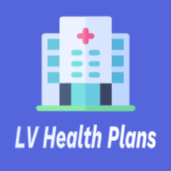FAQ
When is the next open enrollment for the marketplace (Obamacare, ACA)?
The next open enrollment period for health insurance from the marketplace is November 1, 2025 and runs thru January 15, 2026.
How much extra is your insurance plan if you use a health insurance broker to assist you?
The price is exactly the same if you use a broker to help you shop, find, and enroll you and/or your family in a health plan. Agents and brokers such as myself are paid directly from the insurance companies. Thus, you have the benefits, the expertise and convenience of taking advantage of this service, without it affecting your premium in any way.
What is short term medical insurance?
Short term health insurance is a temporary medical insurance plan. Many provide budget-friendly monthly payments for health care coverage while you search for a long term option.
Why have PPO Health Plans become so desired?
The “Preferred Provider Network” {PPO) insurance plans can be a good choice for individuals who want the flexibility to visit any doctor and hospital and to see specialists without a referral. If you prefer to manage your own medical care without oversight from a primary care physician, a PPO might be the right choice. Other health plans, such as the HMO plan, strictly require that you only get care from medical providers within your plan network, which means you wouldn’t be able to get any portion of your care covered if you’re out-of-network.
What is a susidy (Premium tax credit) with health insurance?
Put simply, a health insurance subsidy helps you to pay for your health insurance. Subsidies lower your monthly premium, which is the amount you pay for health insurance coverage every month. It is based on variables such as income, zip code, and family size. A subsidy is not a loan. You will not have to pay them back.
What is meant by the "special enrollment period"?
A special enrollment period allows you to enroll in or make changes to your health plan outside of the regular enrollment period. Examples of qualifying life events that may trigger a special enrollment period include getting married or having a baby.
What Is Indemnity Insurance and why has it become so popular?
Indemnity insurance is a type of insurance policy where the insurance company guarantees payment for services and medical procedures sustained by a policyholder. Per the policy, certain amounts are assisgned to medical services rendered “without having to first meet a deductible“. Another advantage to the policyholder is that more times than not they services are not network specific. Furthermore, they tend to be less expensive than other comparable plans and are often times medically underwritten.
What is a medically underwritten plan?
A medically underwritten plan will employ a quick background check on your health. It is done thru the MIB (Medical Information Bureau). This will give the insurance company a good idea of the status of your health, thus determining if you are eligible for a better health plan.
Facts about Health Insurance
- Most plans also provide free preventative care, like vaccines and screenings. There are stark differences between life insurance vs. health insurance.
- Out of the insured residents of Nevada, 46% have insurance solely through their employer. That leaves over 50% to find health insurance on their own.
- Affordable Care Act (ACA) marketplace insurers are requesting a 6% average premium hike for 2026, mostly because of inflation and higher levels of care since the pandemic in 2020.
- Average health insurance premium costs for an individual in Nevada is $7183 per year. While Nevada isn’t the most expensive, when compared to the state’s median income, the amount Nevadans pay as a portion of their income is one of the highest in the country. (Not to mention, health insurance premiums have risen 35% since 2013.)
- Nearly 25% of adults reported that either they or a member in their household has skipped doses of medicine, cut pills in half or not filled a prescription in the last year due to cost.
- About four in 10 adults (41%) reported having debt from unpaid medical or dental bills.
- Of the expenses adults are most concerned about affording, medical bills ranked second to gasoline and/or transportation expenses.
CONTACT US
Have any questions? We are always open to talk about your healthcare and how we can assist you in any way.
